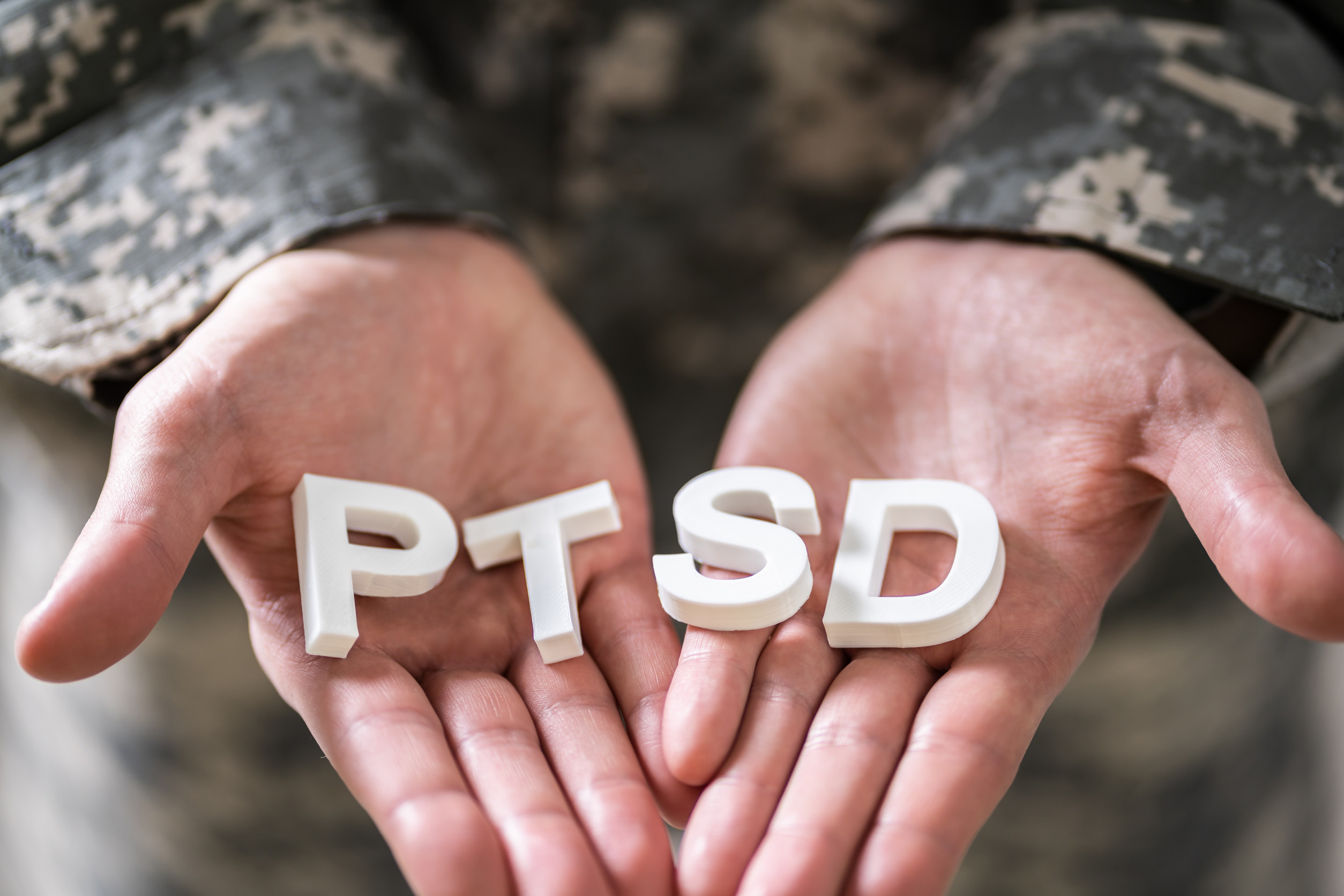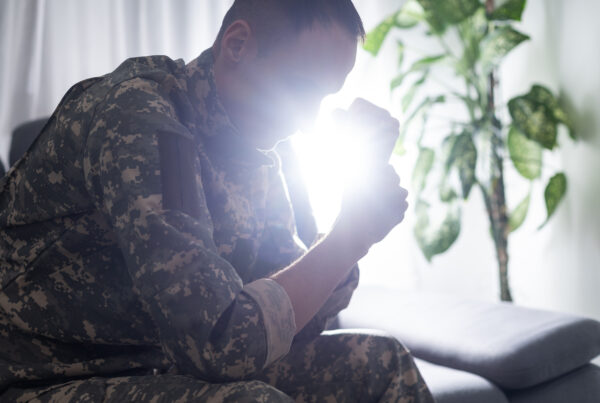”Question: What's the connection between PTSD and sleep problems?
Reading time: 6 Minutes
MWi Hack:
- Poor sleep isn’t just a symptom of PTSD in Veterans—it’s a core driver that amplifies all other symptoms, making quality sleep restoration the hidden key to faster recovery.
MWi Summary:
-
- 90% of Veterans with PTSD suffer from sleep disturbances, making it one of the most common and overlooked symptoms of the condition
- Hypervigilance from military training doesn’t switch off, keeping Veterans in constant alert mode that prevents deep, restorative sleep even in safe environments
- Nightmares aren’t just bad dreams—they’re vivid re-experiencing of trauma that creates fear of sleep itself, leading to destructive avoidance cycles
- Sleep deprivation amplifies every other PTSD symptom, impairing cognitive function, emotional regulation, and stress tolerance while weakening immune systems
- Treating sleep as a core component rather than side effect opens pathways to specialized therapies that can break the cycle and accelerate overall PTSD recovery
June marks PTSD Awareness Month, a critical time to shed light on one of the most pervasive yet overlooked aspects of post-traumatic stress disorder: sleep disruption. For military service members and veterans, the relationship between PTSD and sleep creates a complex cycle that significantly impacts recovery, daily functioning, and overall quality of life.
The Sleep-PTSD Connection
Sleep disturbances affect an estimated 90% of individuals with PTSD, making it one of the most common symptoms of the condition. Research shows that 91% of Vietnam Veterans with a current PTSD diagnosis complained of sleep difficulties, demonstrating the pervasive nature of this issue. Unlike civilian populations where sleep issues might stem from stress or lifestyle factors, military personnel and Veterans face unique challenges rooted in combat exposure, hypervigilance, and the constant state of alertness required in high-threat environments.
The connection runs deeper than simple insomnia. PTSD fundamentally alters the brain’s sleep architecture, disrupting the natural progression through sleep stages. Veterans often experience difficulty falling asleep, frequent nighttime awakenings, vivid nightmares, and early morning awakenings that leave them feeling exhausted despite spending hours in bed.
The Hypervigilance Factor
Military training instills a heightened state of awareness that, while crucial for survival in combat zones, becomes problematic in civilian life. This hypervigilance doesn’t simply switch off when service members return home. The brain remains in a state of high alert, scanning for potential threats even during sleep. This constant vigilance prevents the deep, restorative sleep necessary for physical and mental healing.
Many Veterans report feeling unable to sleep with their backs to doors, needing to check locks multiple times before bed, or waking at the slightest sound. These behaviors, while adaptive in military settings, create significant barriers to quality sleep in safe environments.
Nightmares and Sleep Avoidance
Recurring nightmares represent one of the most distressing aspects of PTSD-related sleep disruption. These aren’t ordinary bad dreams but vivid re-experiencing of traumatic events that can feel as real and terrifying as the original trauma. The fear of nightmares often leads to sleep avoidance, where veterans deliberately stay awake to prevent these experiences, creating a destructive cycle of sleep deprivation.
The content of these nightmares frequently involves combat scenarios, loss of fellow service members, or feelings of helplessness during critical moments. Upon waking, Veterans may experience intense physical symptoms including rapid heartbeat, sweating, and difficulty distinguishing between the nightmare and reality.
The Ripple Effect
Poor sleep doesn’t exist in isolation. It amplifies other PTSD symptoms, creating a cascading effect that impacts every aspect of life. Sleep deprivation impairs cognitive function, emotional regulation, and decision-making abilities. It increases irritability, reduces stress tolerance, and weakens the immune system, making Veterans more susceptible to both physical and mental health challenges.
For military families, PTSD-related sleep issues extend beyond the individual. Partners report their own sleep disruption due to their loved one’s nightmares, restlessness, or hypervigilance. Children in military families may also experience anxiety around bedtime, creating household-wide sleep challenges.
Breaking the Cycle
Recognizing sleep disruption as a core component of PTSD rather than a secondary symptom represents a crucial shift in treatment approaches. Evidence-based interventions specifically targeting sleep in PTSD populations show promising results. These include imagery rehearsal therapy for nightmares, cognitive behavioral therapy for insomnia adapted for PTSD, and specialized sleep hygiene protocols that account for hypervigilance and safety concerns.
Progressive muscle relaxation, breathing techniques, and mindfulness practices can help Veterans transition from hypervigilant states to relaxation. Creating sleep environments that feel secure while promoting rest requires individual customization based on specific triggers and comfort needs.
Through our responsive content and dedicated support, MWi continues to serve the modern military and Veteran community by providing relevant, practical strategies for enhancing connection and wellness. Click below to see more articles:






